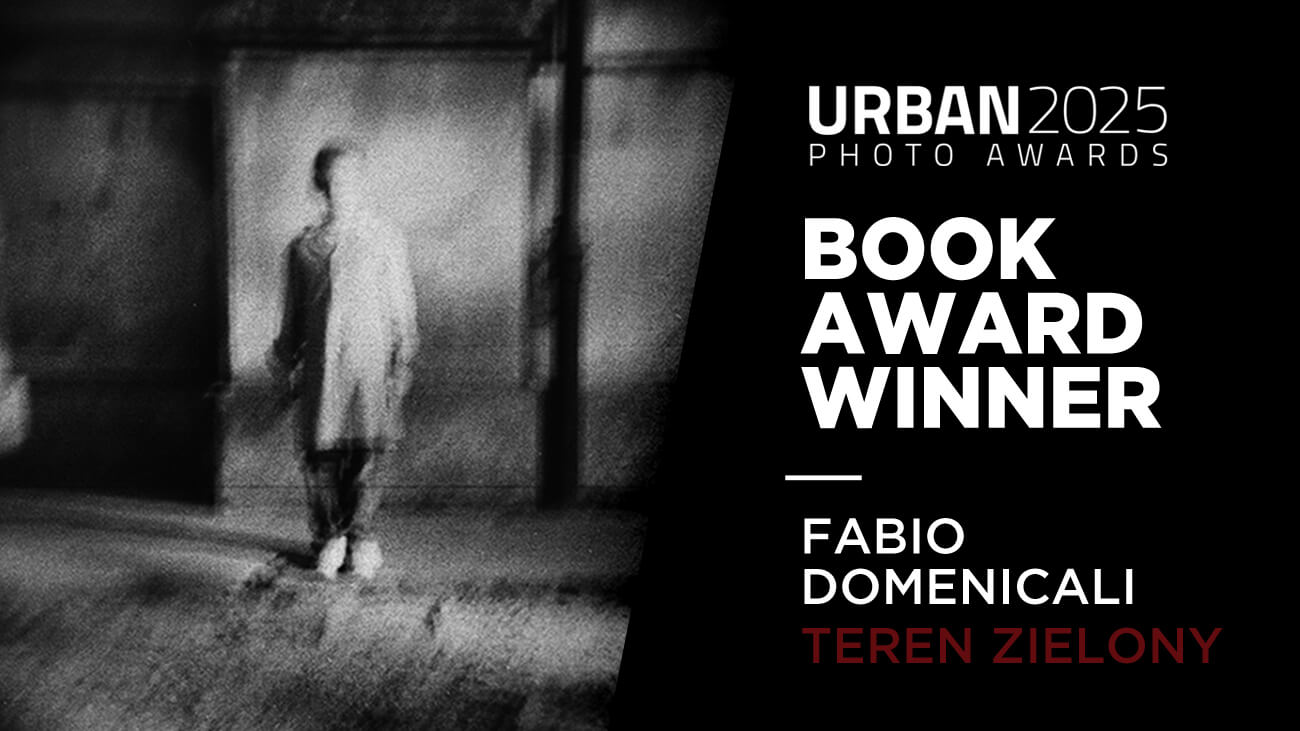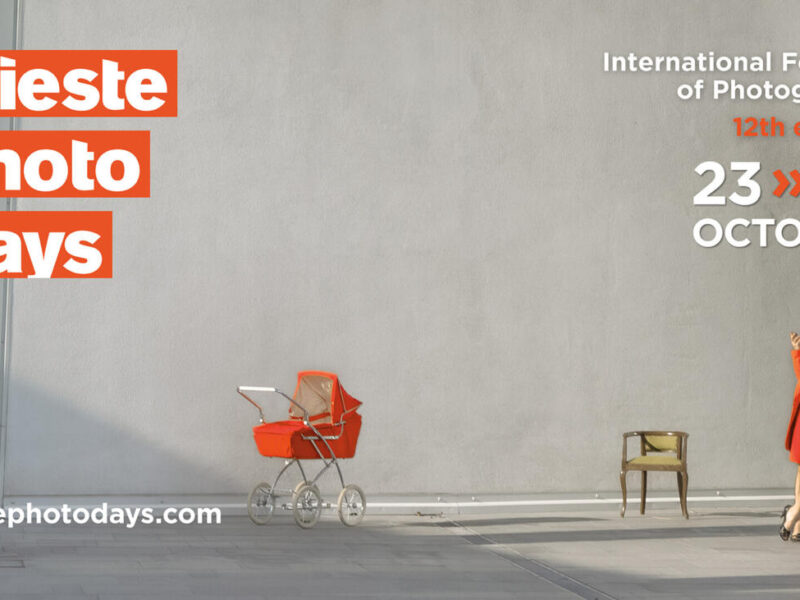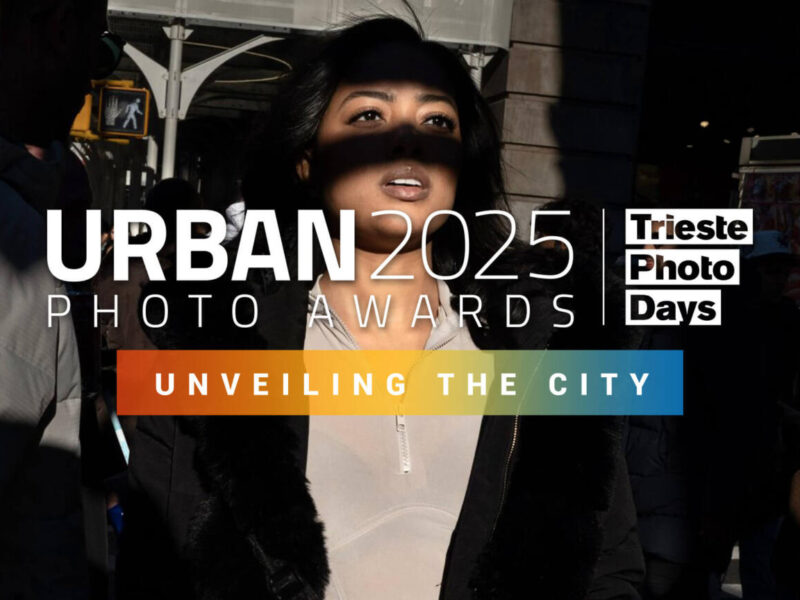Fabio Domenicali Wins the URBAN Book Award 2025 with a Powerful Visual Journey Through Poland
We are pleased to announce that Fabio Domenicali is the winner of the URBAN Book Award 2025 with his book TEREN ZIELONY (Green Zone). The prize was awarded by a jury chaired by Denis Curti, one of the most authoritative voices in contemporary Italian photography.
TEREN ZIELONY began as an attempt to trace the imprint left on Poland by the major events of the 20th century — the Nazi occupation, the Holocaust, and Soviet rule — but soon evolved into an inner journey through the country’s solemn and unspoiled landscape. Arriving in Poland in 2008, the author was captivated by the suspended atmosphere of its rural areas, where time seems to have stood still. Fifteen years later, in 2023, he returns to recapture those emotions and reconnect with the memory of those places, only to find a country deeply transformed. The images taken during the winters of 2008 and 2023 form an intimate narrative blending history, landscape, and introspection.
The book will be published on the occasion of Trieste Photo Days 2025.
Comment from the Special Juror Denis Curti
Denis Curti, curator, critic, and a key figure in the national photographic scene, as well as artistic director of Le Stanze della Fotografia in Venice and of major festivals and awards—explained the choice of Fabio Domenicali’s project as follows:
Fabio Domenicali’s project on Poland conveys remarkable visual strength. A raw, almost nocturnal black and white becomes the backdrop for a story that speaks of emotions, contradictions, and the dreams of a country still little known. Domenicali wastes no time on geography: he dives straight into tracing, through images, the lives of men and women capable of conveying intimacy and human warmth. His visual grammar is precise, hinging on the emotional charge of contradictions. The landscape is no longer just a backdrop, but a living habitat that contains tension and vibration. The opening quote from Antonio Tabucchi’s statement is both fitting and evocative: “A place is never just that place: that place is a bit of ourselves. Somehow, without knowing it, we carried it inside us—and one day, by chance, we arrived there.”
Denis Curti
About the Artist – Fabio Domenicali
Fabio Domenicali, born in Faenza in 1965, has been passionate about photography since childhood. He received his first camera as a First Communion gift — marking the beginning of a lifelong creative journey. Over the years, he has completed numerous photographic projects, earning awards, recognition, and features in various photography publications. His recent accolades include: First prize at Portfolio Italia 2024, Finalist at the Gomma Grant 2025, Selection of his book TEREN ZIELONY at the Dummy Award 2025 at The PhotoBook Museum in Cologne. Alongside his documentary work, Domenicali has always cultivated a diaristic and instinctive approach to photography, which he has recently revisited by digitising his archive of negatives. From this rediscovery came the idea of bringing to light what had long remained hidden in folders and hard drives. In 2014, together with Alberto Pasi, he founded the small independent label FLOW photozine, dedicated to publishing zines and photobooks.
Instagram: @domenicalif
Book Award Honorable Mentions
The jury gave special recognition to these two projects, acknowledging their outstanding quality and remarkable originality
Andrea Bettancini – Chaos Karma
India is not the orderly shelf of the supermarket we are accustomed to; the eye does not rest in any precise spot, and wherever it detects something worthy of being recorded, it sees a little further on, along the perspective planes, other scenes colliding—staging a “theater of chaos” that eludes every attempt to be represented with an iconographic order capable of rendering it intelligible and, therefore, reassuring. India does not present itself to the gaze as a logical system, but as a pulsating organism breathing out of time, like a text that writes itself on the margins of every grammar. In India, neither modernity nor tradition is strong enough to overcome the other. Consumerism and Western modernism seem to demand a universality that here becomes only an abstract concept embedded in a millennial collective memory. The result is a schizophrenic society that always appears to teeter on the brink of the abyss without ever falling in. It is a place where human perceptions are amplified in a formidable resonating chamber of sensory experience—a reverse Ikebana that pursues discord instead of harmony within an impossible yet realized equilibrium. In this panorama, the linear narrative crumbles. The images no longer tell a story: they overlap, shatter, and chase one another in a centrifugal vortex. Yet precisely within this whirlwind lies a challenge: to discover a new way of seeing. There are no definitive answers in this visual dilemma, only questions to be inhabited. Embracing chaos does not mean yielding to disorder, but rather acknowledging its generative potential. Our gaze may be the only thread—a gesture that unites what seems irreconcilable, transforming fragments into meaning. The question is no longer “What am I looking at?” but “How am I looking?” And this question has no simple answer. Every gaze is an act that gets lost, dissolves, refracts. Yet in its disintegration, the image reveals something we cannot easily grasp, compelling us to search, to seek ever more.
Francisco Ubilla – Corners of Geometry
Corners of Geometry is a street photography project that explores fleeting, silent alignments between people and urban space. Captured in cities such as Santiago, Palma de Mallorca, Lima, Madrid, Beijing, and London, the images reveal everyday scenes where light, architecture, and human presence momentarily fall into harmony. This book is a visual meditation on these quiet coincidences: a solitary figure framed by the lines of a metro station, the hat of an elderly woman disrupting a tiled pattern, or a street stall neatly containing its owners. Each gesture invites a different way of seeing. Rather than simply documenting the city, Corners of Geometry proposes a way of reading it, as if it were a living score where geometry and movement briefly align. It is a call to pause, observe, and reconnect with the subtle beauty that emerges from the unnoticed rhythms of urban life.
Toby Binder – 053Kids
In a rich industrialized country like Germany, one in five children lives in poverty. In some districts, such as Duisburg-Hochfeld, it is even more than one in two minors. This is a long-term documentary about the everyday lives of young people, social injustice and questions of identity and belonging. And how a future and home for these kids can look like in times when right-wing parties are deliberately driving forward the division of society and pitting those who have little against those who have nothing. While the young people often neither know their parents’ home country nor feel accepted in Germany, they use the digits 053 of the Duisburg-Hochfeld zip code to identify themselves. It is the only place to which they really feel they belong. These are the 053 kids. In Hochfeld, you see just as many German flags as antifa graffiti. It is often unclear whether the flags are put up by migrants as a conscious sign of their desire to integrate or by the last remaining original inhabitants as a sign of demarcation. Many of the young people have a German passport and speak the local dialect, but do not see themselves as German. “We’re the »Kanacken«, that’s how it is,” says 17-year-old Apo. For them, “the Germans” are above all the old people who hang out at the kiosk every day and lament the decline of the district just as much as the young people who struggle with the lack of prospects here. In Hochfeld, 93% of under-18s come from migrant families. Ensar sees himself as Albanian, “because I have Albanian blood. But I was born in Berlin and if I’m not in Hochfeld for five weeks, I get homesick. I love Germany!” In a violent environment controlled by Arab clans, Eastern European extended families and biker gangs, there is a daily struggle for legal and illegal resources. Prostitution, drug and arms trafficking show young people the supposedly easy money every day and make growing up complicated. Many already have long criminal records or even imprisonment behind them as minors, while some try to make their way by doing well at school. And they often only manage this with great discipline and effort, as the families often live in cramped housing conditions and on low incomes. A feeling of gratitude for the opportunities they have is mixed with a lack of understanding for the complicated structures that make it difficult for young people from these districts to achieve success. Gangsters or rappers often seem to be the quickest way to a better life.







